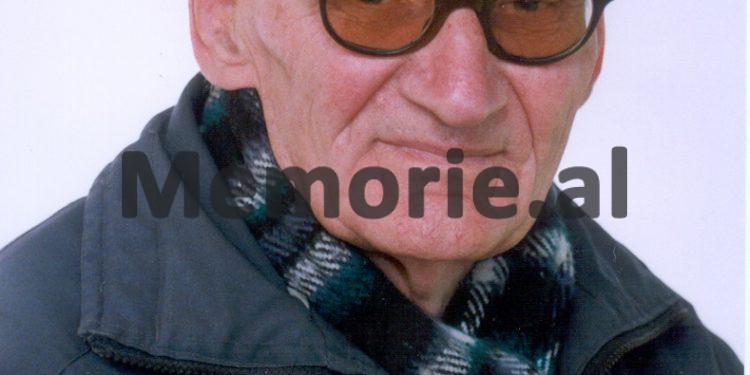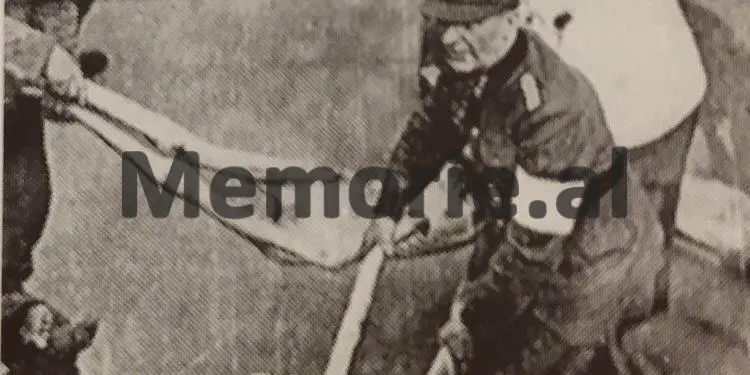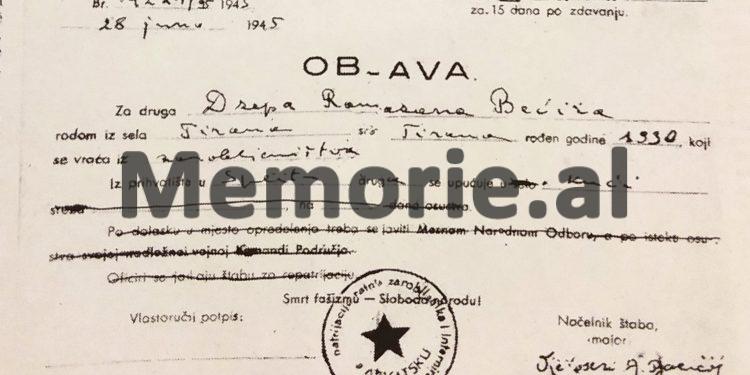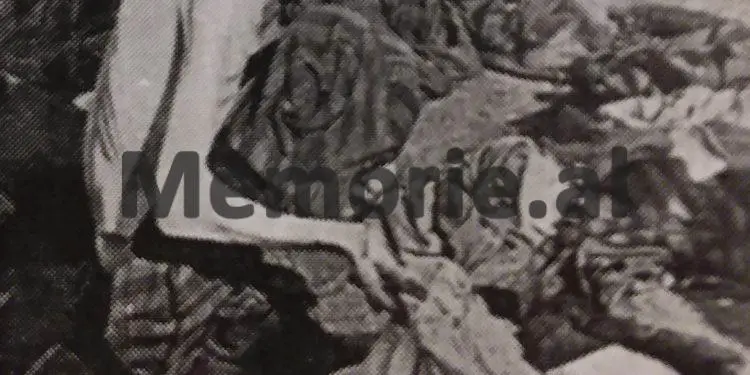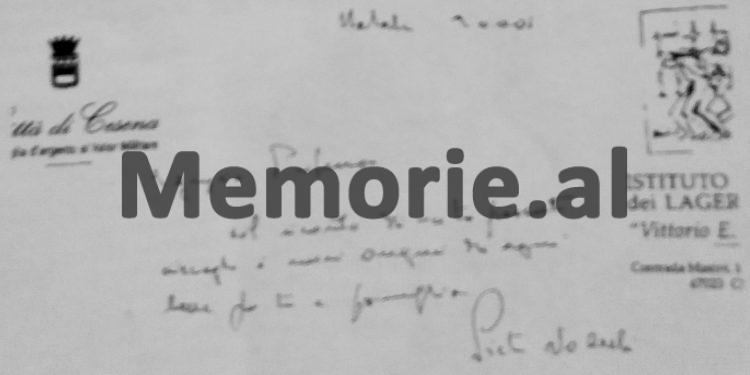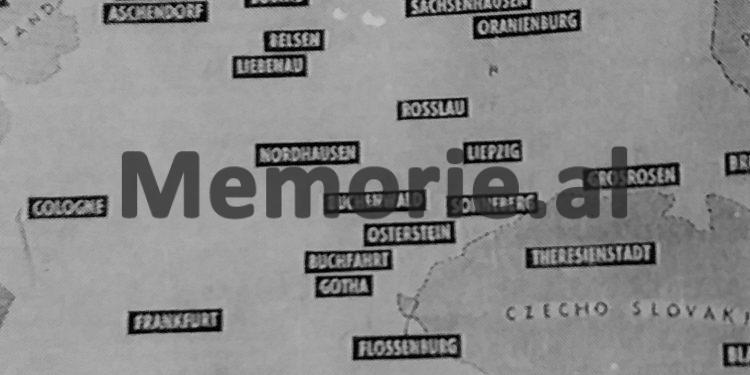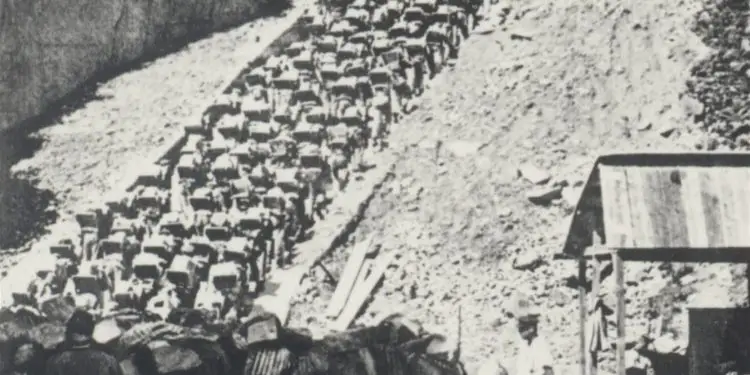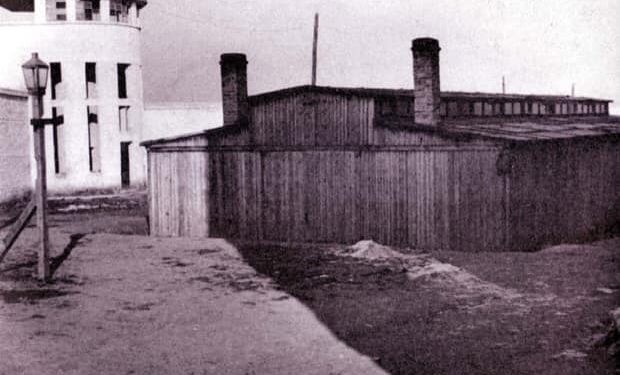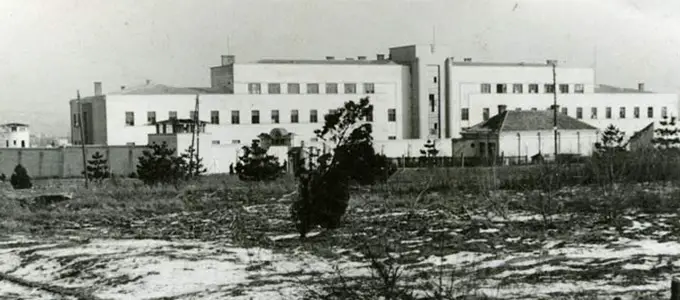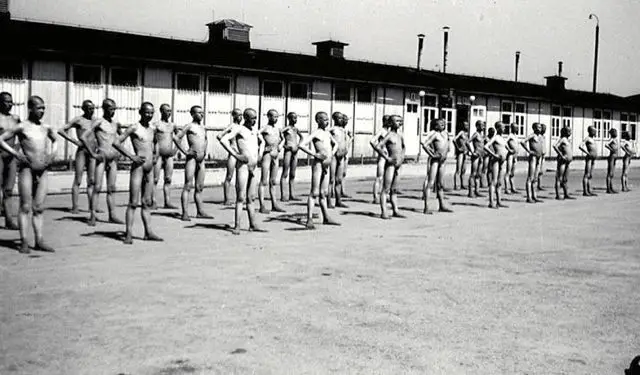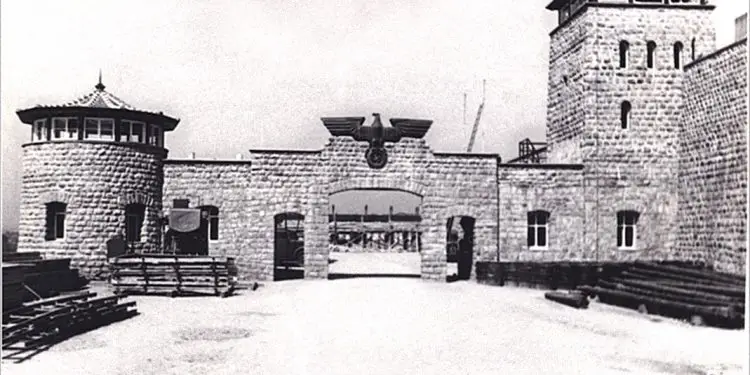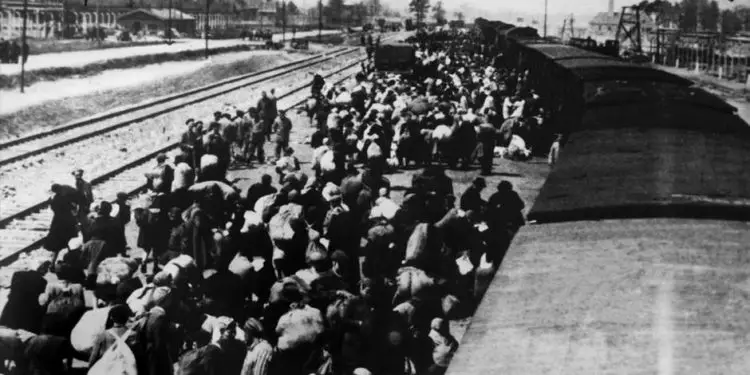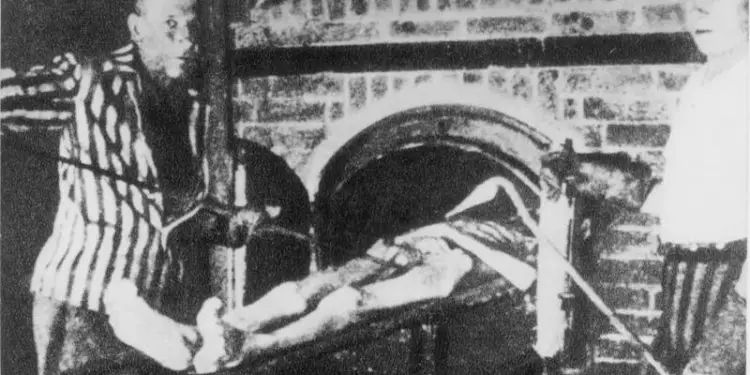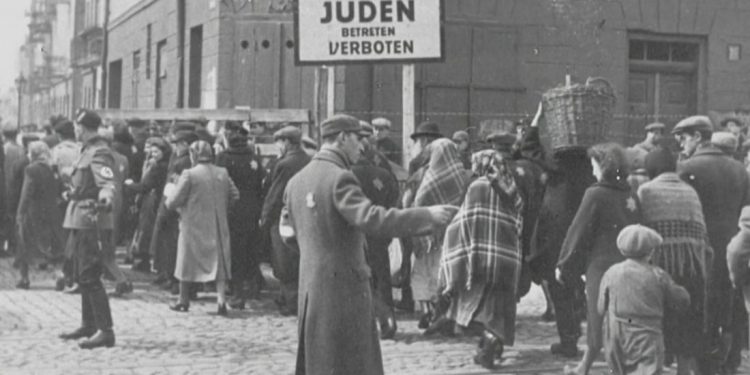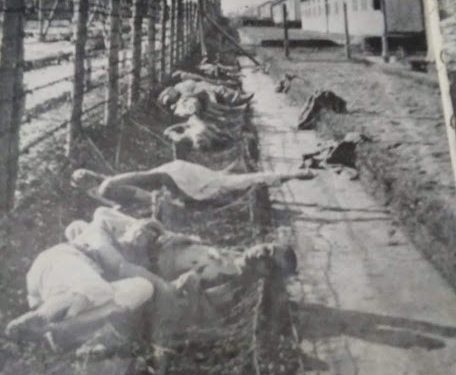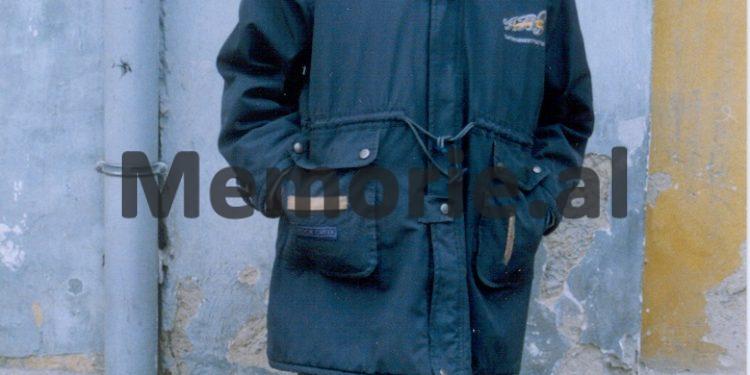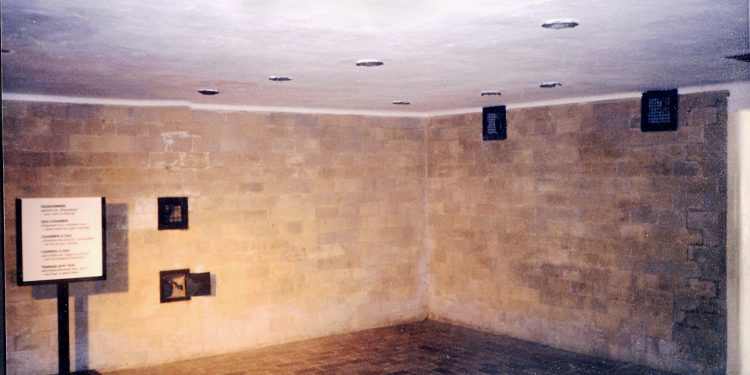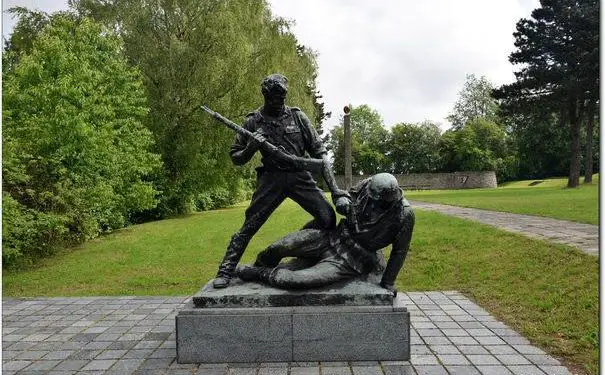Dashnor Kaloçi
Memorie. al In commemoration of May 9, the day of victory over fascism, publishes the unknown story of Albanians who during the German occupation of the country, were arrested and interned in the concentration camps they had set up in Yugoslavia at the time, such as in Pristina, Zemun, and Banica near Belgrade, where about 500 Albanians were serving their sentences at the time. The rare testimonies of Beqir Ramazan Xhepa, one of the few Albanians who survived the Nazi extermination camps, which tells about the initial journey of Albanian prisoners with military trucks on the route: Tirana, Elbasan, Struga, Bitola and from there by train to the Zemun camp on the outskirts of Belgrade. How were Albanian, Yugoslav and Greek prisoners treated in that camp, from the inhumane living conditions, food, and epidemics with contagious diseases where 130 Albanians died, to the tortures inflicted on them and the names of those Albanians who collaborated with the Germans in harm to their compatriots ?!
“In the Nazi extermination camps that the Nazis had opened in almost every European country, unfortunately, there were also some Albanians who worked closely with the Gestapo and who spied on or mistreated their compatriots. Among them, we can mention Hilmi H. and Thanas B. from Vlora, or their two patriots Dr. Vasili and Dr. Lluka, who treated the Albanians who were imprisoned in those internment camps very badly. During visits to their compatriots, Dr. Vasili and Dr. Lluka stood two meters away from the convicts and lifted their shirt with a leash because they were afraid of getting a contagious disease, such as typhoid fever or dysentery. Or sometimes they were expelled and not visited at all. Both were Gestapo collaborators and returned home in August 1944. While others were sent to exterminate them in Mauthausen. Dr. At the end of the war, Vasili fled to Italy. This is what Beqir Ramazan Xhepa, who was one of the few survivors who managed to escape from those terrible camps, testified, among other things. Although he had been a courier for Qemal Stafa and their home in the center of Tirana was one of the most powerful bases where some of the main leaders of the Albanian Communist Party were housed, Beqir Xhepa was imprisoned four times by the communist regime of Enver Hoxha, and along with him, other family members, such as his father, uncle, brother, etc., where some died under torture or were permanently maimed by the inhuman treatment of the investigator. While with all this we are acquainted in a long interview of Mr. Xhepa, where he gave his testimonies regarding the involvement of Enver Hoxha in the murder of Qemal Stafa and then the sentencing of all his friends, in this article, he testifies to one of the most painful and tragic stories of Albanians who suffered. in Nazi concentration camps, such as Zemuni, Banica, Mauthausen, Gusen, Ebensee, Melk, etc., where he personally suffered after being arrested by German forces by sending a letter to the Peza Squad in 1943.
Continued from the previous issue
How did the Albanians settle in that camp?
Inside the prison courtyard, there were some abandoned barracks, where the Albanians settled in three of these, and in the other three, the Greeks settled, while the Yugoslavs sent them inside the main building.
Did the Germans allow you the help that the Yugoslavs gave you?
No no, that was not allowed and everything was done in complete secrecy. When the Germans learned of this, they took measures and surrounded it, isolating the barracks with barbed wire. So they insulate the place where the bread was, in a small yard, inside the big yard of the prison.
What about the Albanian prisoners in the Banica camp, were you organized as the Yugoslavs did?
Seeing the Greeks and the Yugoslavs, we Albanians also had to create the Revolutionary Committee headed by Kozma Nushi, Enver Veljen, and Sul Cenojmeri.
What was the activity of that committee in prison?
The committee organized the withdrawal and distribution of food aid to Albanians, assistance provided by the Yugoslav and Greek Revolutionary Committees. Despite the measures taken by the Germans, what is called the bread action was organized. Several people took part in the action, certainly the most courageous and agile. For this, there were some divergences between our friends such as Kozma Nushi and Telat Noga, on the one hand, and Enver Velja and Sul Cenameri on the other. Divergences came because Sul Cenameri wanted the Central Albanian group to secede from the southern Albanian group led by Kozma Nushi and Telat Noga. So in short, the groups of Tirana, Durrës, and Elbasan, to create their own group and of course he would be led by Sul Cenameri.
Why was there a conflict between them?
As a pretext, Sula and Enver Velja rightly raised the issue of the bread action, saying that only the friends of Central Albania could take part in that action and put their heads in danger, while Telat Noga’s group had more opportunities. easy to supply bread by selling or exchanging any cigarettes with 1 kg of bread etc. He kept these cigarettes hidden and shared them with his group. So according to Cenamer and Velja, the group of Southern Albania had a source from where it could be supplied, while those who did the action had no source. So hunger forced them to risk their lives and do the bread action, unlike the other group. This was rightly raised by Sul Cenameri and Enver Velja.
How was this problem solved?
After 4-5 debates, in the Revolutionary Committee, an agreement was reached and remained as it was, i.e. a joint revolutionary group where the bread action would be carried out by those who had carried it out at the time.
How was the bread action performed?
The comrades assigned to this action agreed through the windows with the imprisoned Yugoslav comrades, making various signs which we called the Esperance. They retreated to the barracks and reached the windows of the silos where they were. These were four friends, who every evening went head to head in the bag and carried out the action with high heroism, for the benefit of the whole collective. There the Yugoslavs, after filling two sacks mainly with bread and through a rope on the side of the second floor, started the sacks which were taken by these four friends. Almost 500 rations of bread were provided each day. This was a very dangerous job for our comrades because, if they were spotted by the German guard of the tower, you risked your life. So this was not just the action of bread, but we can rightly call it the act of heroism.
What do you remember about any other events with the prisoners in that camp?
There was an event almost every day, but I’ll show it to you with a friend of ours who had a tragic end. One July night in 1944, one of the Albanians began shouting, “Before the partisans, kill the Germans.” After these calls, he started singing patriotic songs, and this situation continued until the morning. Our comrades tried to calm him down, but it was not possible. Three doctors were called to calm him down, but two of them did not even come close, while Dr. Mihali tried to bring it to himself, but could not. This was Gani Kokli from Tirana, a former partisan who had lost his mind due to horror and torment. In the morning, the Gestapo came and picked him up, ostensibly to take him to the neuro-psychiatric hospital in Belgrade, but in fact, he was sent in an unknown direction and executed.
Did you Albanian prisoners in that camp have divisions or problems with each other?
We had a problem because even there among us, there were people with a very low character such as Mustafai from Kavaja, who was an ordinary thief. He had no connection with the National Liberation Movement and had accidentally come to that camp. To save his own skin he snatched from his physically weakest friends the bread ration of 200 gr.
Were there Albanians who lost their lives in that camp?
Eighty Albanians died in the Banica prison, so of the 512 Albanians who were initially in the Zemun camp, their number dropped within a short nine-month period to nearly 300. A total of 212 Albanians died in Zemun and Banica.
What do you remember from Mauthausen?
In August 1944, Stalin’s Red Army began advancing rapidly toward Germany. For this reason, the Nazis lifted all the prisoners from Banica, sending us to the Mauthausen concentration camp. This camp was located in Austria and was one of the most terrible concentration camps. After taking us from Banica, they took us to the Belgrade train station, putting us in closed wagons of goods, in which you could not see anything outside. The inside of them was very tight and you couldn’t stand alone. Breathe in the heat as well.
How long did that trip take?
The trip lasted almost a week and two Albanians, Sadik Boshnjaku from Elbasan and Jani Godo, died on the way to Mauthausen. The most important event of this trip, that is, Belgrade-Mauthausen, was the murder of the Serbian criminal, Bane, in whose hands many Albanians had given their lives.
How did his murder happen?
The assassination of Bane was carried out by comrades of the Yugoslav Revolutionary Committee, who caught him in the wagon while traveling at night with other Yugoslav prisoners. After they had covered his mouth with a handkerchief and tied his hands, they strangled him, striking him with whatever they could. When the train was moving, it was thrown at the bodies of other dead people on the wheels of the wagons. This was the fate of the Serbian criminal Bane who served the Nazis as much as he could, but in the end, they did not even ask about him. Because each of them wanted to save their own skin.
When did you arrive in Mauthausen?
Our group arrived in Mauthausen on August 20, 1944. At 3 a.m. at the train station, we were lined up three by three. It took an hour’s walk to reach the hill where the quarry, which had eaten hundreds of lives, ended up in the “castle of hell,” Mauthausen. In this camp for a period of 6 years, it was said that thousands of internees of different nationalities died, who joined and became brothers in the midst of horrors and sufferings, among them Albanians. When we got there, we saw the chimney of the crematorium emitting smoke mixed with red flames from the burning bodies.
What were the rules for the Mauthausen camp?
According to the rules of the camp, on appeal, you have to throw all your clothes and belongings on the ground, and then go to the bathroom. Before bathing, you need to go to the barber. There, after shaving and shaving zero, a 3-4 cm line was made with a razor in the middle of the head. wide where you were identified as a Mauthausen prisoner. After taking a bath, they were taken out naked in the camp yard. After keeping us naked for a few hours, they finally handed us the camp uniform, which had thick white and blue stripes that resembled zebras. Also place a triangle and a matrix number on the chest, back, and below the trouser pocket. To her right was a blue triangle indicating that you were a political prisoner. Albanians numbered from 79,770 to 100,071. After the rules and regulations of the camp became known to us, the next day we were assigned to work in the quarry.
How was work there?
Working there was the hardest and most deadly. All those who worked here died within a very short time. Those who posed a high risk worked here. According to the Nazis, Kozma Nushi, Telat Noga, Shefqet Leka, Sul Cenomeri, Enver Velja, etc. were among the Albanians with high risk. After two days on August 23, 1944, a part of the Albanians was sent to the Mauthausen branch camps such as Ebensee, Mels, Gusen, etc.
Were you the first Albanian prisoner to be sent to the Mauthausen camp?
No, before us there was another group of Albanians and we learned that there in Mauthausen from the Spanish prisoners, who told us that a year ago, in September 1943, another group of 25 Albanians had mourned. of themselves, who had previously been exiled to Italy, and with the capitulation of Italy, they were sent to Mauthausen. When our group of Albanians went there in August 1944 to Mauthausen, they did not find even one of these Albanians who had come from Italy in September 1943, after all of them had died or disappeared from the SS military.
How many Albanians have suffered in the terrible Mauthausen camp and how many of them were able to get out of that camp alive?
If we calculate the 25 Albanians who passed the gate of Mauthausen in 1943 and the others 301 in August 1944, it turns out that a total of 326 Albanians passed through that camp, and out of this only 23 escaped alive and 22 of them returned. at home after the capitulation of Nazi Germany. Based on these data, it turns out that 303 Albanians lost their lives there in the infamous Mauthausen camp or its affiliates, as in Gusen, Melk, Ebenze, etc., from inhuman tortures, starvation, diseases, ill-treatment, etc.
Right there in the Mauthausen camp, you Albanian prisoners, did you organize like in Banica, Yugoslavia?
The Albanians imprisoned in Mauthausen could not create a “bloc” on their own, as did other foreign nationalities. This was very negative for the Albanians, but it must be said that on the other hand it also had its positive sides, because by spreading to the “blocs” of other foreign nationalities, we learned many things that we did not know before.
Specifically, what…?
By getting to know them closely, we were able to join the illegal international organization that had been set up and operating inside the camp, against Nazism. Albanians even joined the illegal military units that were formed in January 1945, which consisted of 76 people (all men) from 25 different nationalities living in that camp. All had their representatives in these illegal military units.
Who were the Albanians in that unit?
Among the Albanians in that unit were: Kozma Nushi, Sul Cenomeri, Fadil Alushi, Shefqet Leka, etc. This was another important step, as Kozma Nushi became a member of the Revolutionary Committee.
Why is it said that Mauthausen was one of the most terrible camps of the German Nazis, how do you remember that?
It is true that the Mauthauseniy camp was one of the most terrible camps in Europe, among the 636 concentration camps in Germany and Austria in early 1945, not to mention the other camps located in the territories of Poland, Czechoslovakia, Yugoslavia, etc. There the work was very heavy and the food was very little compared to the work that was done. So hard work and low food were the two main factors that certainly led to gradual death, while other physical tortures, hanging ropes, killings by any means that came in handy, such as special and collective executions. (shootings), crematorium burns, and many others that the SS considered to being entertainment.
Are those human bodies like the skeletons we see in various films or photos, from the lack of food?
Only from lack of food, as it was more than normal for a prisoner to lose 10, 20, 30, kg. within a short period of two months, from their arrival in the camp.
What about work, how was it there?
Work there never ceased, neither day nor night, in the rain, in the wind, in the storm, in the frost and frost, or in the heat when the sunburned and burned like nothing, especially on the rocks where the prisoners worked in breaking stones, which heated up. more from the sun and added to the heat. Prisoners there have worked on several fronts, such as quarries, the opening of tunnels and galleries, the opening of irrigation canals to drain swamps, entering the water up to the belt, and when there was ice.
How many hours did the prisoners work on those work fronts?
Working hours vary according to the camps and depending on the work fronts, but it was always long, over 12 hours a day.
What about the diseases, were there any problems as you said about the Zemun camp?
The problem of contagious diseases, such as dysentery, typhoid fever, and others, was very problematic due to the lack of basic hygiene and cleaning conditions, as there was a lack of water, toiletries, etc., and their lack often caused epidemics that wreak havoc by taking the lives of prisoners.
What was the medical care for the prisoners like?
Not only was there no medical care for the prisoners, but they were often tortured and mistreated for no reason. So when there were cases when they were sick, they were forced to strip naked and put in cold showers even in the middle of winter.
But for the sick, there was no difference at all?
Nor was it the case that when one of the prisoners complained that he was ill, the answer given was: “There is no sick here, there is only the living or the dead,” and among them, you had to find a solution.
What punishment was there for those who broke the rules?
One of the most common punishments there was hanging, which often took place under the sound of music in the large square where we lined up to appeal. The convicts were forced to go and see their comrades when they hung on the rope. Hanging execution was done by means of a mechanism (Makara) that raised 9 to 11 people at once. And when it was cold and the temperatures were a few degrees below zero, they were lazy to go out and use that mechanism to hang the prisoners and leave them in the cold for 24 hours until they got up and died on their own without the need to. to hang them. There were many other forms that imprisoned prisoners until they lost their souls.
But did any of the Albanian prisoners have the misfortune to experience these inhuman tortures?
I was one of them but I don’t want to dwell on that, as I at least escaped alive while the others stayed there.
How did the Germans treat the Albanian prisoners in that camp?
In the autumn of 1944, when we Albanian prisoners had just arrived at that camp, we took part in the sabotage of the new camp that would be built near Mauthausen called “Osvjeçini i Ri”, which was rumored to be in his crematorium. had a capacity to burn about 30,000 corpses a day. But fortunately, this plan of the Germans could not be realized, because it was sabotaged by the prisoners who were there, were among them were Albanians, and the second and most important was the fact that the Germans at that time were perverted by the great losses they had suffered everywhere on the two war fronts, that of the East and the West. So on November 30, 1944, the behavior of the Germans towards us changed completely for the worse, as they became furious with us Albanians and shot us with everything they had in their hands, wherever they looked at us.
But why did this happen ?!
We found out the real reason for this sometime later and it had come because of the departure of the Germans from Albania, where the Anglo-American tools had suffered significant losses from the airstrikes, for which they blamed the Albanian government. , who, as they said, had not interfered at all in their internal affairs. At the beginning of 1945, in the first months of January, February, March, or April, after many sufferings and tortures, our friend Kozma Nushi, who was in the Gusen camp, a Mauthausen filal, died. His death saddened us all immensely, as he was the leader of the Albanian resistance since the camp of Zemun and Banica in Yugoslavia, and also there in Mauthausen and Gusen. Kozmai had been the political secretary of the Communist Party for the Durrës Region and was the man to whom we Albanians had high hopes.
What happened to you Albanians later in the Mauthausen camp and its other branches?
We Albanians were sent to the Ebenze camp, which was a branch of Mauthausen and the last of the 636 concentration camps set up by the German Nazis on November 18, 1943, and which was at the same time the most terrible camp of all the other camps. which remained open and functional until the end of Hitler’s German capitulation, because all the prisoners in the other camps, mainly those of Mauthausen, were evoked and transported there.
Why do you say Ebenze was the most horrible camp ?!
But because of the fact that all the prisoners in other camps were gathered there, living became much more difficult as the food that was calculated only for the prisoners of that camp would be divided and distributed to all the others who came. there. So in April 1944, prisoners were given only 75-80 grams of bread a day, and even a week or about ten days, the prisoners were left without a single gram of bread, which greatly increased the number of deaths.
How many dead people were there and were there Albanians among them?
Almost every “block” had an average of about 80 to 100 deaths a day, including many Albanians.
What were the accommodation conditions like after they all gathered at that camp?
Sleeping became very difficult as the prisoners were forced to sleep from four to five people in one bed or on the floor.
Going back to the group of Albanians who were in the Mauthausen camp, were they all communists?
The second group of Albanians who had mourned in the Mauthausen camp in August 1944, were conglomerates where there were patriots, patriots, nationalists, communists, Republicans, Zogists, Anarchists, ordinary thieves, etc., who came from different countries. and among them were young men and children. Shortly after their arrival at the camp, the camp authorities spoke at length about their lives there and provided them with warm helmets and gloves. But this was a very good thing, especially for us Albanians who spread us through the “blocks” of different nationalities and branches, where we Albanians could not create a “block” on our own. There in that camp, I remember many young people working on pieces of stone, hearts, and other beautiful things that they then hung around their necks like talismans or medallions.
Were there Albanians in any other Mauthausen branch camp?
There have been several camps and one of them has been the Liobl camp, which was a small but very dangerous camp for the lives of the prisoners. There, the corpses of the prisoners were burned in a large fire that was made with wood on the border of the camp, that is, as far away as possible from the barracks and barracks, where the prisoners and the prison authorities were. It was horrible when you saw how the prisoners were forced to bring firewood at the expense of burning the corpses of their comrades. The nurses also brought the prisoners to the SS headquarters, where the Nazi doctor gave them a lethal injection and they died shortly afterward.
Do you remember any occasion with an acquaintance who had this tragic fate?
I remember a Polish child about 12 years old who was so deported that he barely made it from the quarry in the camp. Tired as he was, he didn’t pay much attention to the sticks that he had to take to the camp, and the person in charge of the “block” beat him, and with scratches on his face the next day he appeared in front of the whole camp, setting an example for all the prisoners as well as the head of the quarry who had allowed him to come to the camp without the wooden sticks. At dinner, when we were returning from work at the camp, he was able to keep himself afloat and fell to the ground. A Spaniard picked him up, took him by the arm, and, half-dead, sent him to the camp, where he probably ended up in the nurses’ stalls leading them to the doctor who gave them the lethal injections.
Any other cases you remember that you have left in your memory?
Another tragic event that I remember is that at the beginning of December 1944. On that day it was raining mixed with snow and it was very cold. We took off all our body clothes, leaving us alone with our underwear, and so they sent us to work. We worked like that until lunch where the powers left us as we were made of rainwater that had gotten us to the marrow and we could barely stand.
What happened to you then, they returned to the camp?
They sent us back so that we would not die there or on the road, but when we went to the camp, out of about 80 people in that group with different nationalities, only about 60 of them were able to eat what was called lunch. lay in their seats and died a few days after the lung had cooled.
How and when were you released from Nazi camps?
From February to March 1944, prisoners of all Mauthausen camps, ie its branches, were evacuated and all gathered in Mauthausen and finally in Ebenezer. On May 5, in Ebezne, where we Albanians were, the American troops came and entered. Immediately all four or five Albanians who were there were released, while the others taking place in Mauthausen were taken over by the comrades of the illegal organization of the Italian and Yugoslav revolutionaries. American troops began talking to Albanians, persuading them to go with them to the United States, and they also told the Italians and Yugoslavs who were there.
Were you personally told to go to the US?
Of course, an American major came two or three times to pray for me and my friend Abdulla Krutani, but we both refused because we wanted to return to Albania with our families who knew we were dead. After that, we were ordered that the Italians, Yugoslavs, and we Albanians would return to our countries, either through Yugoslavia or through Italy. And so it happened, we returned through Yugoslavia with the Yugoslav “comrades.” (Here is the document they gave me in Yugoslavia so that I would not be prevented from returning to Albania).
When you returned to Tirana, how were you received at home, did they know that you would return?
This is a very painful story in itself that will take hours to tell. At home not only did they not know that I was going to return, but they had known me for a long time, and they had opened the mortuary according to custom, and when they saw me at the door, my mother fainted, remembering that I was not a ghost. We barely brought it to ourselves and it became a big celebration, where we gathered all our people who were crying with tears of joy.
But on the part of the state of that time, did anyone receive you and what did they tell you?
This is also a very long story not only with me but also with the rest of us survivors who could have come back alive, as most ended up back in the prisons of that regime accused of being “spies, enemies of the people.” and criminals ”.
Did anyone meet you?
No, they didn’t wait for us, but I could meet Enver Hoxha himself (at his office where the “Pioneers’ Palace” later became), as our family, my uncle, Ademi, had not only kept him during the war, but we had also paid very large sums of gold for the Movement. But I better not have met Enver at all, because he said to me: “Hey, Khan’s son, why did you come back so late from exile, or were you nothing of a German spy” ?! After what he told me, I got up and left without shaking his hand at all./Memorie.al




